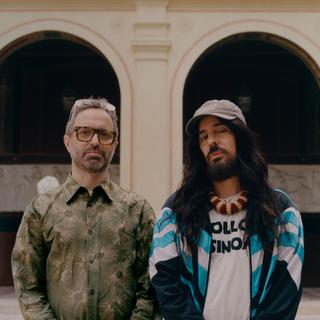


Philosopher Emanuele Coccia and designer Alessandro Michele believe fashion deserves a place in the world of ideas. Here's why
In DepthClothing has long been dismissed or overlooked by most thinkers. In 'The Life of Forms,' Emanuele Coccia and Alessandro Michele finally establish a interesting dialogue. The book demonstrates the transformative and liberating power of a discipline far more profound than it may seem.
At 6:35 pm, at 50 Rue de Varenne, extra folding chairs had to be added to the already packed room at the Italian Cultural Institute of Paris (ICIP). On Wednesday, May 21, 250 people gathered for the French launch of the book La Vitta delle forme (The Life of Forms), co-written by fashion creator Alessandro Michele, 52, and philosopher Emanuele Coccia, 49. Facing the garden, on the creaking parquet floors beneath the gilded decor of the Hôtel de Gallifet, in the very room "where Napoleon and Madame de Staël once met," as the ICIP director reminded the audience, another kind of union was being made official before a largely receptive crowd: the convergence of two disciplines that had rarely crossed paths until now.
While sociology has considered clothing as a marker of generation, society, status or gender, fashion has remained largely absent from the world of ideas or culture. At French publishing house Flammarion, they even say that "the subject is still new to philosophy." At the book signing which took place at the Hôtel des Beaux-Arts, Coccia – who, in previous works, had already expanded the philosophical field to plants, the home and even angels – offered an explanation deeply entrenched in both tradition and posture.
"One does not learn – unless you specialize – the history of fashion. Not at school, not at university. No one teaches the importance of Gabrielle Chanel, who changed the codes by transforming a sports garment, such as her tweed jacket, into an emblem of elegance, bringing together two simultaneous questions: 'What is a woman?' and 'What is an athlete?' The result is that in 2025, if you don't know anything about Charles Frederick Worth, Paul Poiret, Yves Saint Laurent, Azzedine Alaïa or Martin Margiela, that's fine. You can even brag about it. Whereas, if you know nothing about Picasso, you're considered a philistine."
You have 82.89% of this article left to read. The rest is for subscribers only.
